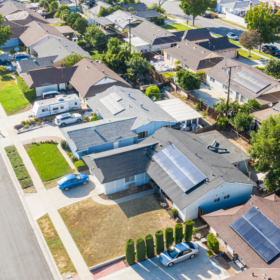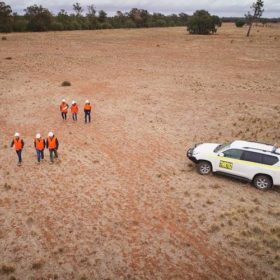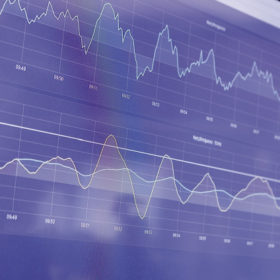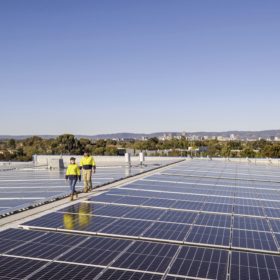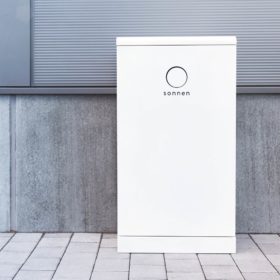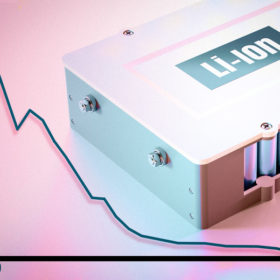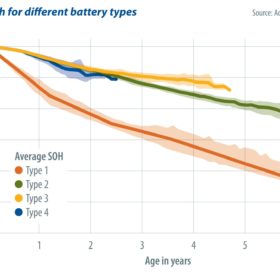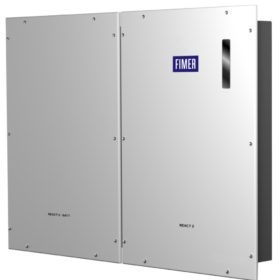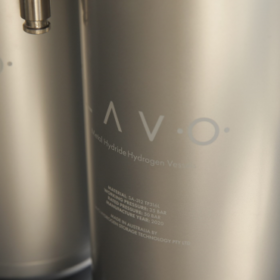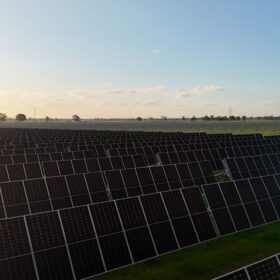Commercial returns on VPPs ‘proven’ as expanded program adds more sophisticated features
Simply Energy on Thursday announced it will be extending its Virtual Power Plant program across the eastern seaboard and opening it up to five different battery brands. Simply Energy will continue its technology partnership with SwitchDin to do so, with Ryan Wavish, Simply’s General Manager, and Andrew Mears, CEO and founder of SwitchDin, telling pv magazine Australia they plan to introduce a whole range of new, more advanced features into the VPP as the relationship between the two companies evolves.
$2.4 billion battery minerals complex granted major project status
The way has been smoothed for Australian mining company Sunrise Energy Metals to take advantage of the booming lithium-ion battery industry with the federal government awarding Major Project Status to a $2.4 billion nickel and cobalt mine being developed in New South Wales.
Western Australia launches $35 million ‘symphony’ of residential renewable assets
Western Australia has today announced the launch of its $35.5 million Virtual Power Plant trial, Project Symphony, which will examine the ways in which residents, utilities, and network operators can join forces to centrally orchestrate the output of rooftop solar, batteries and other distributed resources to best serve both customers and the grid at large.
C&I developers attracts backing from investment giant
Melbourne-based company Green Peak Energy has attracted the backing of one of the world’s largest investment firms, CBRE Investment Management. While deal’s details remain confidential, the Australian company, which focuses on operating renewable systems in the C&I segment and providing power purchasing agreements (PPAs), described the agreement as an endorsement of the problem it set out to solve.
Sonnen launches residential battery specifically designed for Australia, marking shift in global strategy
German company sonnen, a wholly owned subsidiary of Shell, today launched a new residential battery storage system specifically developed for Australia and New Zealand. Chief Commercial Officer of sonnenGroup and Managing Director of sonnen Australia, Nathan Dunn, told pv magazine Australia its sonnenBatterie Evo is the culmination of a new approach and may go on to inform how its future products for global markets are developed.
Behind the price drops in lithium-ion batteries
Scientists in the United States pieced together data from hundreds of different sources, looking to establish the key factors that have led to consistently falling prices for lithium-ion technology since their commercialisation thirty years ago. They find that public-funded research, primarily in chemistry and materials science, has made the largest contribution to cost reduction. And they offer suggestions on policy and investment to ensure that the research can continue to make these important contributions to reduction in battery costs.
Phase-change material tech to store thermal energy, solar electricity in buildings
NREL scientists have unveiled a storage system based on a phase-change material that can store both thermal energy and electricity in a single device. According to the researchers, the new technology may be used to store excess electricity produced by on-site solar or wind operations in large scale buildings.
Saturday read: Battery performance, uncovered
Batteries are taking the energy world by storm. From residential home storage systems to large-scale installations, today’s society increasingly relies on powerful batteries. And, as we all know, with great power comes great responsibility. But, how can we ensure that our use of batteries today is responsible, cost-effective, or even safe? Kai-Philipp Kairies, CEO of Accure Battery Intelligence, shares some of his experience gained from monitoring more than 750 MWh of various storage applications.
Consistency shines bright in battery storage testing
Independent battery performance and reliability tester ITP Renewables has been running its trial of solar storage batteries since 2016. Over the years one of the broad conclusions to be drawn is that home storage systems are by no means reliable across the board. However, some few systems stand out, including Fimer’s hybrid solar inverter and storage solution, the React 2.
Hyped hydrogen storage company opts to manufacture fuel cells near Brisbane
Queensland continues to attract massive hydrogen industry factories, with LAVO Hydrogen Technology today announcing it would establish a fuel cell manufacturing facility just south of Brisbane.
